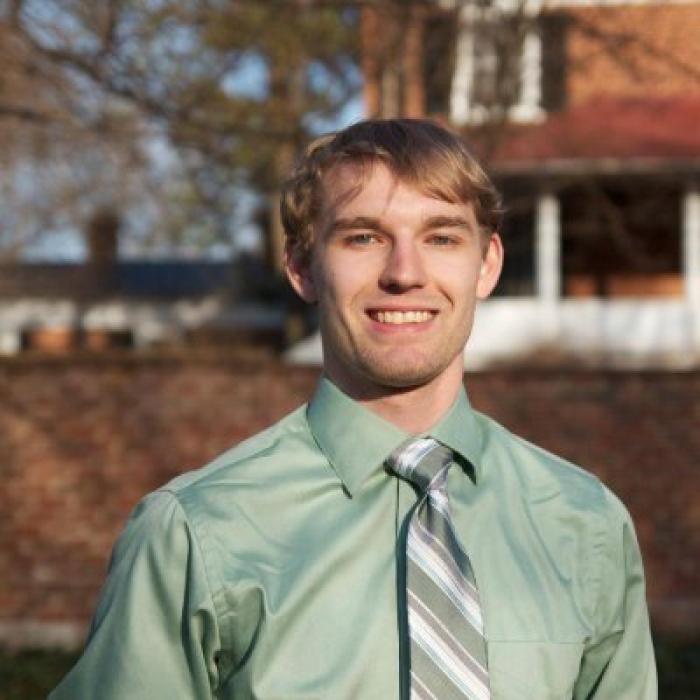News

Rob Dyer: My Research in the Hilinski Group for Five Levels of Understanding
By Rob Dyer
UVA ChemSciComm
These summaries describe a research project for five different levels of understanding, going from primary school to expert.
Primary School:
Creating new types of medicine is a difficult task, but very important for treating potential illnesses. Medicines are made up of a variety of ingredients, some of which are chemical compounds that make the medicine unique. Before a medication can be developed, these chemical compounds have to be tested for how safe they are and how well they treat an illness. But before anything can even be tested, we have to make that potential medicine. Making all these chemical compounds can be a difficult task, as many compounds might be tested before we get the perfect one for a medication. As an organic chemist, I work to find easier and faster ways to make these potential compounds so that we can make new medications. The more easily we can create these compounds, the more easily we can develop new medicine to treat new and challenging illnesses.
High School:
Developing medication for diseases remains a significant challenge to society. Medications consist of a variety of ingredients, but each typically consists of a unique chemical compound that interacts with our body to treat the illness. Thousands of compounds must be tested to find the perfect treatment, however, before they can be tested, they must first be created. As an organic chemist, I work to develop new ways to make compounds. My research focuses on transforming abundant and simple precursors into more highly valued compounds by developing new and efficient methods. The more easily we can create new compounds through these transformations, the more easily we can develop new medications.
College:
Creating therapeutics remains a significant challenge in terms of both time and cost. Thousands of compounds have to be synthesized and tested in order to identify a couple that may actually be useful as a treatment. As an organic chemist, I work to develop new ways to make these compounds. Making these molecules involves transforming abundant and simple precursors and modifying them into compounds which contain specific structural elements. These molecules generally consist of a carbon-carbon and carbon-hydrogen bond framework, wherein carbon-nitrogen and carbon-oxygen bonds are selectivity introduced provide the desired structural complexity. The differences in the types of bonds and overall structure of the compound make it potentially useful as a therapeutic. My work focuses on taking advantage of the carbon-hydrogen bonds of compounds that are relatively inert but ubiquitous in common precursors. We hope to precisely break specific carbon-hydrogen bonds to add new carbon-oxygen or carbon-nitrogen bonds. By making these new bonds selectively, we can create new compounds with desirable structures rapidly, speeding up the timeline of therapeutics research.
Graduate Student in the Discipline:
Organic Chemistry remains a living and continuously developing field of chemistry. The timeline and cost of new drug development can take up to a decade and a billion dollars. Thousands of compounds have to be synthesized in order for a handful to actually be useful as a treatment. I work to develop new and efficient ways to make these compounds. High-value compounds generally consist of a carbon-carbon and carbon-hydrogen bond framework, wherein carbon-nitrogen and carbon-oxygen bonds provide structural complexity. The overall bonding and three-dimensional structure of the compound make it potentially useful as therapeutic. My work focuses on taking advantage of the inert and overlooked carbon-hydrogen bonds as a handle for adding new complexity by inserting oxygen and nitrogen bonds. Given the ubiquitous number of carbon-hydrogen bonds in a compound, selectivity remains a key problem. By developing highly reactive but selective reagents in a controlled synthetic environment, we can precisely modify already complex compounds to form new ones. The more easily we can create new compounds through these transformations, the more easily we can develop medications.
Expert in the Field:
New and efficient ways to create complex molecules remains a synthetic challenge. My work focuses on taking advantage of the inert and overlooked carbon-hydrogen bond in complex molecules as a handle for adding new complexity by specifically inserting oxygen and nitrogen bonds. Given the ubiquitous number of carbon hydrogen bonds in a compound, selectivity of a specific carbon hydrogen bond remains a key problem. By developing highly reactive but selective organic and catalytic reagents in a controlled environment, we can precisely modify already complex compounds to form new ones in an efficient and cost-effective manner. The more easily we can create new compounds through these transformations, the more easily we can develop medications.
